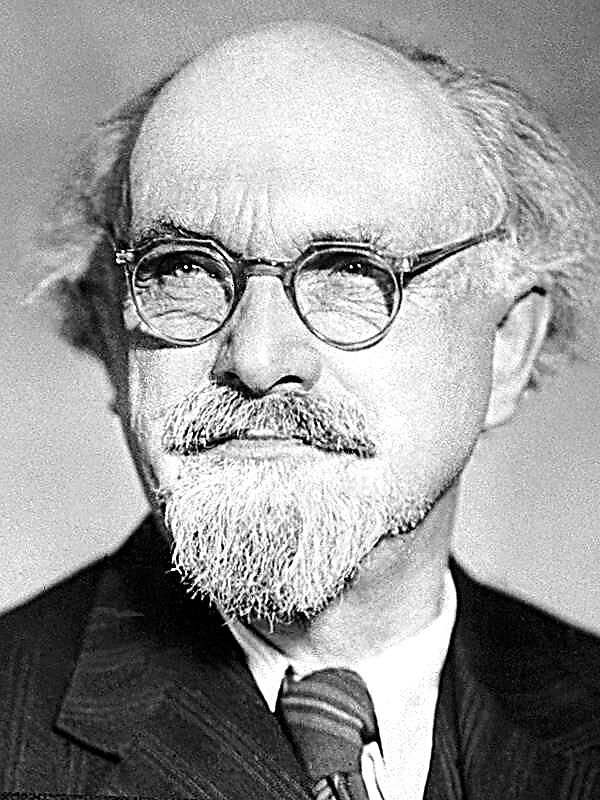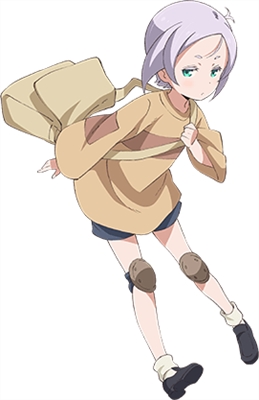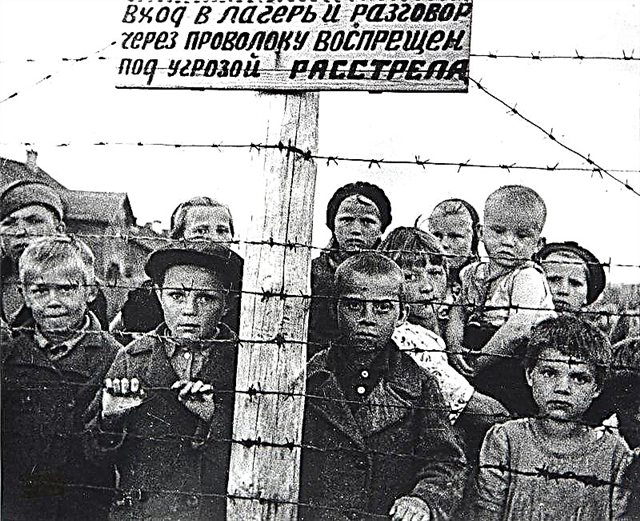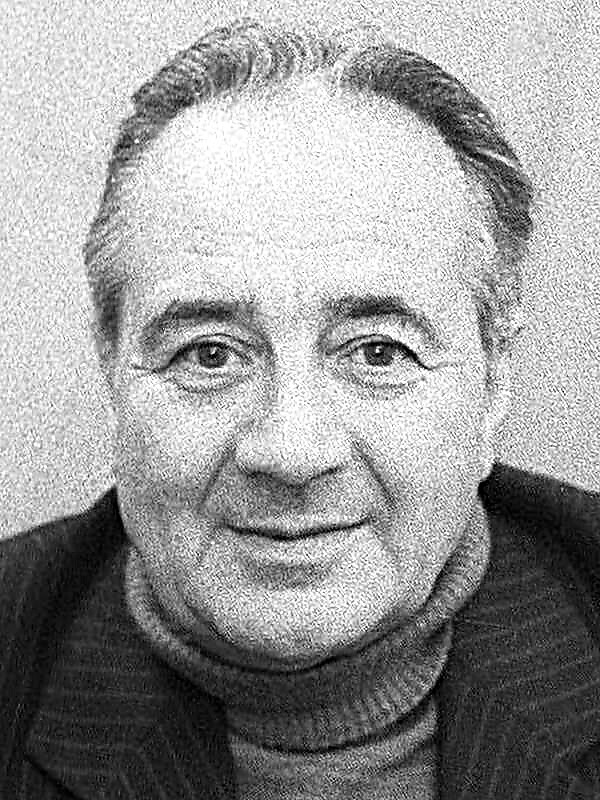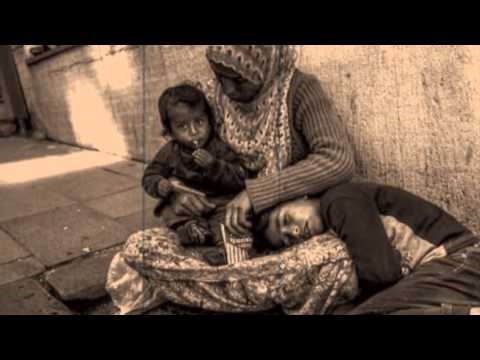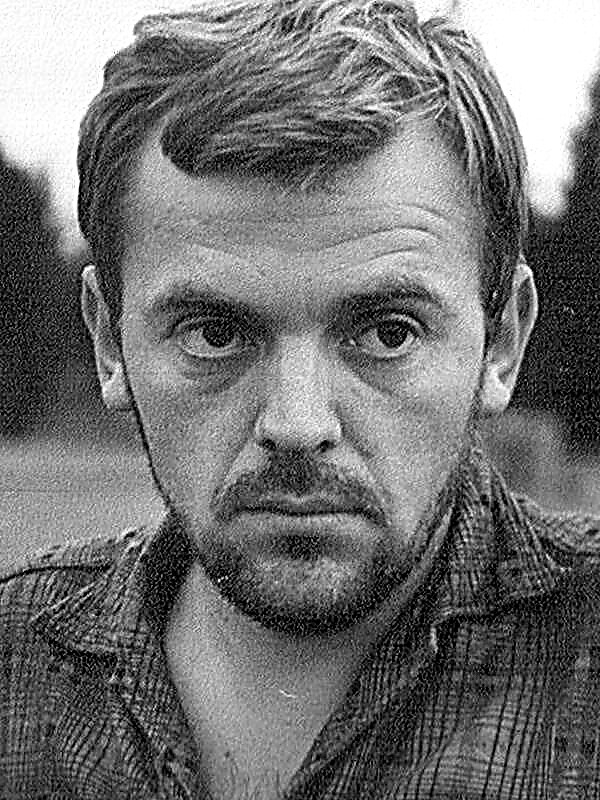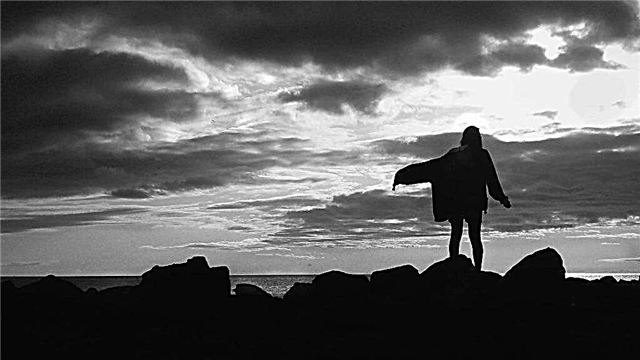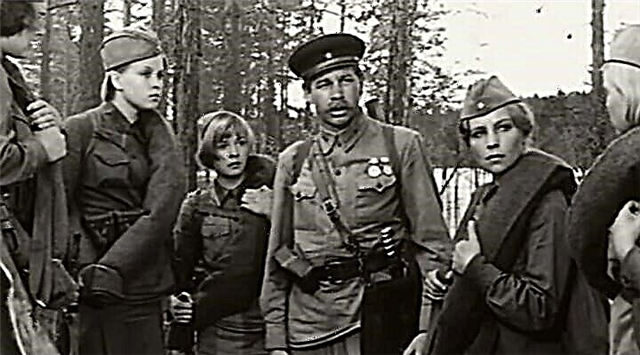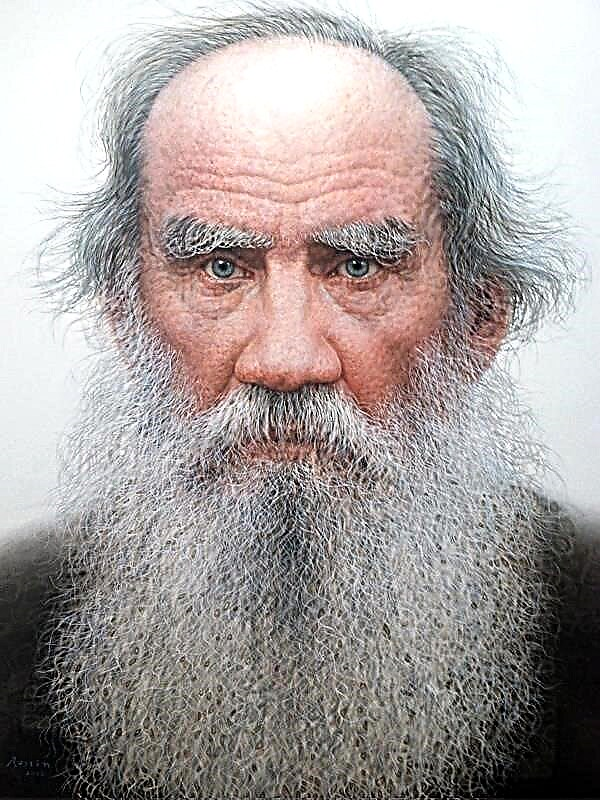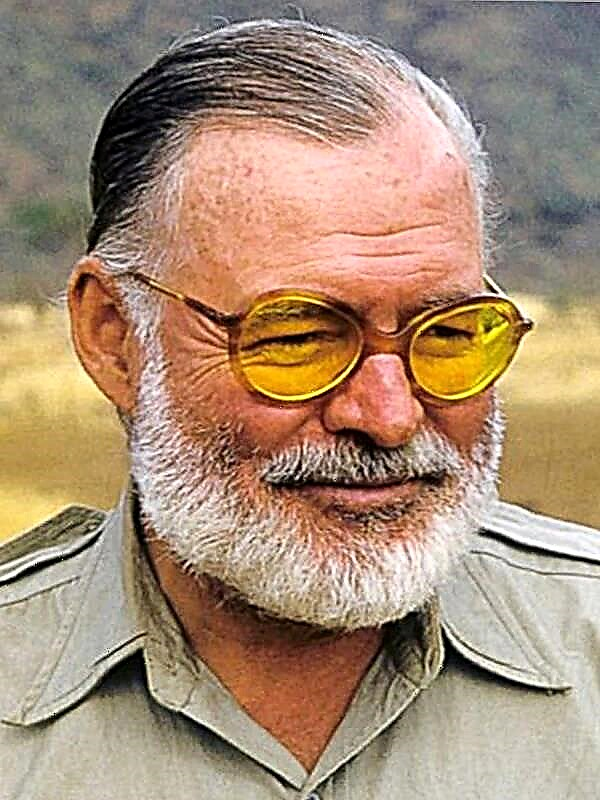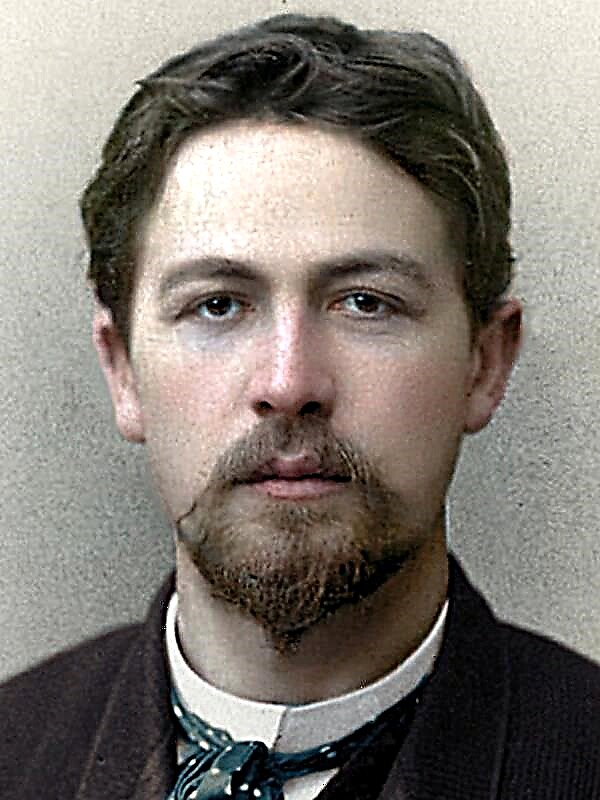Without a doubt, The Storm (1859) is the pinnacle of Alexander Ostrovsky’s dramaturgy. The author shows the most important changes in the socio-political life of Russia as an example of family relations. That is why his creation needs a detailed analysis.
History of creation
The process of creating the play “The Storm” with many threads is connected with past periods in Ostrovsky's work. The author is attracted to the same problems as in the “Moskvitanian” plays, but the image of the family gets a different interpretation (the novelty was the denial of stagnation of the patriarchal life and oppression of Domostroy). The appearance of a bright, good start, natural heroine is an innovation in the work of the author.
The first thoughts and drafts of Thunderstorms appeared in the summer of 1859, and already in early October the writer had a clear view of the whole picture. The work was greatly influenced by a trip along the Volga. Under the patronage of the Ministry of the Sea, an ethnographic expedition was organized to study the customs and customs of the indigenous population of Russia. Ostrovsky also participated in it.
The city of Kalinov is a collective image of different Volga cities, simultaneously similar to each other, but having their own distinctive features. Ostrovsky, as an experienced researcher, made all his observations about the life of the Russian province and the specifics of the behavior of residents in the diary. Based on these recordings, the characters of Thunderstorm were later created.
The meaning of the name
Thunderstorm is not only a rampage of the elements, but also a symbol of the collapse and purification of the stagnant atmosphere of a provincial town, where the medieval orders of Kabanikhi and the Wild ruled. This is the meaning of the title of the play. With the death of Katerina during a thunderstorm, the patience of many people is exhausted: Tikhon rebels against the tyranny of his mother, Varvara escapes, Kuligin openly blames the inhabitants of the city for what happened.
For the first time, Tikhon spoke of a thunderstorm during a farewell ceremony: "... there will be no thunderstorm over me for two weeks." By this word, he meant the oppressive atmosphere of his house, where the tyrannical mother rules the ball. “A thunderstorm is sent to us as punishment,” says Wild Kuligin. Samodur understands this phenomenon as punishment for his sins, he is afraid to pay for an unfair treatment of people. The boar is in solidarity with him. The punishment for sin in thunder and lightning is also seen by Katerina, whose conscience is also not clear. God's righteous wrath - this is another role of the thunderstorm in Ostrovsky's play. And only Kuligin understands that in this natural phenomenon you can find only a flash of electricity, but his advanced views cannot yet get along in a city in need of purification. If you need more information about the role and significance of a thunderstorm, you can read an essay on this topic.
Genre and direction
“Thunderstorm” is a drama, according to A. Ostrovsky. This genre defines a heavy, serious, often everyday plot, close to reality. Some reviewers mentioned a more precise wording: household tragedy.
If we talk about the direction, then this play is absolutely realistic. The main indicator of this, perhaps, is a description of the mores, habits, and everyday aspects of the existence of residents of provincial Volga cities (a detailed description is here). The author attaches great importance to this, carefully outlining the realities of the lives of heroes and their images.
Composition
- Exposition: Ostrovsky draws an image of the city and even the world in which the heroes live and future events unfold.
- The following is the beginning of Katerina’s conflict with the new family and society as a whole and internal conflict (dialogue between Katerina and Barbara).
- After the tie, we see the development of the action, during which the heroes seek to resolve the conflict.
- Closer to the final, the conflict reaches the point where problems require urgent resolution. The climax is Katerina’s latest monologue in 5 acts.
- Following her is the denouement, which shows the insolubility of the conflict on the example of the death of Katerina.
Conflict
There are several conflicts in Thunderstorm:
- Firstly, this is a confrontation between tyrants (Wild, Kabanikha) and victims (Katerina, Tikhon, Boris, etc.). This is a conflict between two worldviews - old and new, obsolete and freedom-loving characters. This conflict is highlighted here.
- On the other hand, the action exists due to a psychological conflict, that is, an internal one - in Katerina’s soul.
- Social conflict gave rise to all the previous ones: Ostrovsky begins his work with the marriage of an impoverished noblewoman and a merchant. This trend was widespread in the days of the author. The ruling aristocratic class began to lose power, becoming poorer and ruining due to idleness, wastefulness and commercial illiteracy. But the merchants gained momentum due to unscrupulousness, assertiveness, business acumen and nepotism. Then some decided to improve things at the expense of others: the nobles passed off sophisticated and educated daughters as rude, ignorant, but wealthy sons from the merchant guild. Due to this discrepancy, the marriage of Katerina and Tikhon was initially doomed to failure.
Essence
Raised in the best traditions of aristocracy, the noblewoman Katerina, at the insistence of her parents, married a crude and soft-bodied drunkard Tikhon, who belonged to a wealthy merchant family. His mother oppresses the daughter-in-law, imposing the false and absurd orders of the Homebuilder on the one: to sob for show before the departure of her husband, to humiliate ourselves in public, etc. The young heroine finds sympathy with the daughter of Kabanikh, Barbara, who teaches a new relative to hide her thoughts and feelings, secretly acquiring the joys of life. At the time of her husband’s departure, Katerina falls in love and starts dating Wild’s nephew, Boris. But their dates end in separation, because the woman does not want to hide, she wants to escape with her beloved to Siberia. But the hero cannot risk taking it with him. As a result, she still repents to her husband and mother-in-law of sins, receives severe punishment from Kabanikh. Realizing that conscience and oppression do not allow her to live on, she rushes to the Volga. After her death, the young generation rebels: Tikhon rebukes his mother, Varvara escapes with Kudryash, etc.
Ostrovsky’s play combines features and contradictions, all the pros and cons of feudal Russia of the 19th century. The town of Kalinov is a collective image, a simplified model of Russian society, described in detail here. Looking at this model, we see "a necessary need for active and energetic people." The author shows that an outdated worldview only interferes. It spoils first the relationship in the family, and later prevents the cities and the whole country from developing.
The main characters and their characteristics
The work has a clear system of characters, which fits the images of the characters.
- Firstly, they are oppressors. Wild is a typical tyrant and wealthy merchant. From his insults, relatives scatter in the corners. Wild is a cruel servant. Everyone knows that it is impossible to please him. Kabanova is the embodiment of a patriarchal way of life, an outdated Domostroy. A rich merchant, a widow, she constantly insists on observing all the traditions of her ancestors and she follows them clearly. We described them in more detail in this composition.
- Secondly, adapted. Tikhon is a weak man who loves his wife, but cannot find the strength to protect her from the oppression of her mother. He does not support the old orders and traditions, but sees no reason to go against the system. Such is Boris, who suffers the machinations of his rich uncle. The disclosure of their images is devoted to this essay. Barbara is the daughter of Kabanikh. She takes her deception, living a double life. During the day, she formally obeys conventions; at night she walks with Kudryash. Falsehood, resourcefulness and cunning do not spoil her cheerful, adventurous disposition: she is also kind and responsive to Katerina, gentle and caring towards her beloved. A whole thing is dedicated to the characterization of this girl. writing.
- Katerina stands apart, the characterization of the heroine is different from everyone. This is a young intelligent noblewoman, whom her parents surrounded with understanding, care and attention. Therefore, the girl was accustomed to the freedom of thought and speech. But in marriage, she faced cruelty, rudeness and humiliation. At first she tried to reconcile, to fall in love with Tikhon and his family, but nothing came of it: Katerina’s nature opposed this unnatural union. Then she tried on the role of a hypocritical mask that has a secret life. This also did not suit her, because the heroine is distinguished by directness, conscience and honesty. As a result, out of hopelessness, she decided to go on a riot, admitting sin and then committing a more terrible one - suicide. We wrote more about the image of Katerina in her dedicated composition.
- Kuligin is also a special hero. He expresses the author’s position, introducing into the archaic world a fraction of progressiveness. The hero is a self-taught mechanic, he is educated and smart, unlike the superstitious inhabitants of Kalinov. We also wrote a short about his role in the play and character. essay.
Topics
- The main theme of the work is the life and customs of Kalinov (we devoted a separate essay) The author describes a provincial province in order to show people that there is no need to cling to remnants of the past, you need to understand the present and think about the future. And the inhabitants of the Volga town froze out of time, their life is monotonous, false and empty. It is spoiled and hindered in the development of superstition, conservatism, as well as the reluctance of tyrants to change for the better. Such Russia will continue to vegetate in poverty and ignorance.
- Also important topics here are love and family, as the narrative raises the problems of upbringing and generational conflict. The influence of the family on certain heroes is very important (Katerina is a reflection of her parents' upbringing, and Tikhon grew so spineless due to the tyranny of her mother).
- The theme of sin and repentance. The heroine stumbled, but realized in time her mistake, deciding to correct herself and repent of her deed. From the point of view of Christian philosophy, this is a highly moral decision that exalts and justifies Katerina. If you are interested in this topic, read our writing about her.
Issue
Social conflict entails social and personal problems.
- Ostrovsky, firstly, exposes tyranny as a psychological phenomenon in the images of Wild and Kabanova. These people played with the fate of subordinates, trampling the manifestations of their individuality and freedom. And because of their ignorance and despotism, the younger generation becomes as vicious and useless as that which has already outlived its own.
- Secondly, the author condemns weakness, obedience and selfishness with the help of images of Tikhon, Boris and Barbara. By their behavior they only condone the tyranny of the masters of life, although they could together turn the tide in their favor.
- The problem of a contradictory Russian character, transmitted in the image of Katerina, can be called personal, albeit inspired by global upheavals. A deeply religious woman, in search of and finding herself, goes to treason, and then to suicide, which contradicts all Christian canons.
- Moral problems associated with love and devotion, education and tyranny, sin and repentance. Heroes cannot distinguish one from another, these concepts are intricately intertwined. Katerina, for example, is forced to choose between fidelity and love, and Kabanikh does not see the difference between the role of the mother and the power of dogma, she is driven by good intentions, but she embodies them to the detriment of everyone.
- Tragedy of conscience a lot of important. For example, Tikhon had to decide whether to protect his wife from mother attacks or not. Katerina also made a deal with her conscience when she became close to Boris. You can learn more about this. here.
- Ignorance. The residents of Kalinov are stupid and not educated, they believe fortune-tellers and wanderers, and not scientists and professionals. Their worldview is turned into the past, they do not strive for a better life, so there is nothing to be surprised at the savagery of morals and ostentatious hypocrisy of the main figures of the city.
Meaning
The author is convinced that the desire for freedom is natural, despite certain failures in life, and tyranny and bigotry are destroying the country and talented people in it. Therefore, it is necessary to uphold your independence, craving for knowledge, beauty and spirituality, otherwise the old orders will not go anywhere, their falsity will simply embrace the new generation and force them to play by their own rules. This idea is reflected in the position of Kuligin, the peculiar voice of Ostrovsky.
The author's position in the play is clearly expressed. We understand that Kabanikha, although she preserves traditions, is not right, just as the rebellious Katerina is not right. However, Katerina had potential, had a mind, was a purity of thoughts, and the great people personified in her can still be reborn, having cast off the shackles of ignorance and tyranny. You can learn even more about the meaning of drama in an essay on this subject.
Criticism
Thunderstorm has become the subject of fierce debate among critics of both the 19th and 20th centuries. In the XIX century, Nikolai Dobrolyubov (article “A ray of light in the dark kingdom”), Dmitry Pisarev (article “Motives of Russian drama”) and Apollon Grigoryev wrote about it from opposite positions.
I. A. Goncharov praised the play and expressed his opinion in the critical article of the same name:
In the same drama, a broad picture of national life and customs was laid down, with unparalleled artistic, fullness and fidelity. Every person in the drama is a typical character, snatched straight from the midst of folk life.

